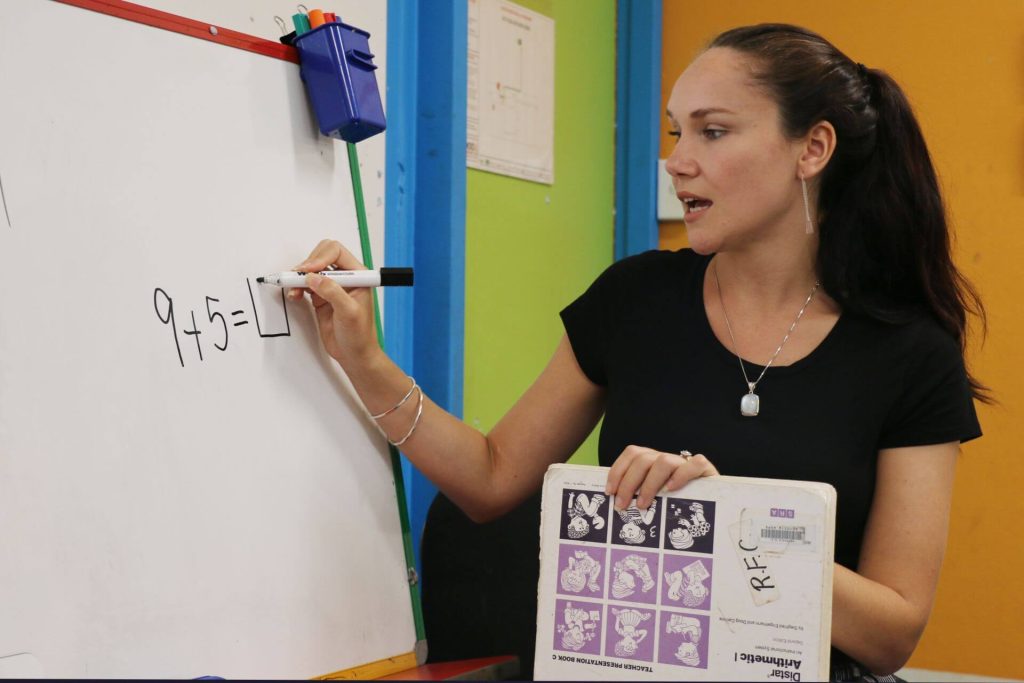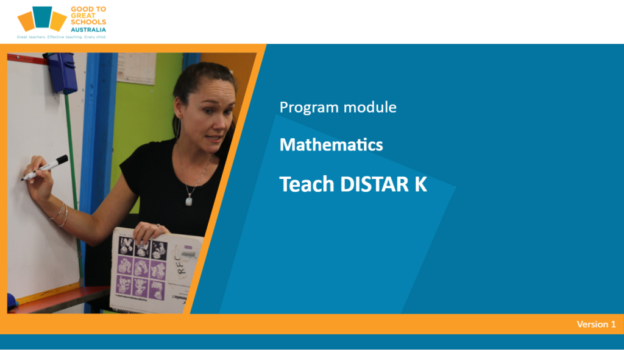
Program Module
Teach DISTAR K
Overview
DISTAR Arithmetic K is a professional learning module for teachers and teaching assistants. In this module, participants will understand the rationale for using DISTAR Arithmetic K and learn about the materials, placement testing, grouping and use of positive praise. They will also understand the progression of the learning tracks of DISTAR Arithmetic K, the potential problems, and learn how to correct specific mistakes.
Learning intents
Context setting
Understand the direct instruction content and the rationale behind program sequencing (3.1.02).
Understand importance of placement test in placing students in programs and levels (3.2.02).
Demonstrate effective use of instructional time by managing classroom (3.4.02).
Preparing to teach
Demonstrate techniques that engage students and deliver lesson components to fidelity (3.1.02).
Understand how to extract student mastery data from curriculum, assessment, and reporting (3.1.03).
Demonstrate ability to teach lessons using direct and explicit instruction teaching techniques (3.2.01).
Implement all parts of direct and explicit instruction lessons (3.2.07).
Corrections
Communicate corrective feedback to students during instruction and independent learning (3.6.01).
Understand purpose of providing timely and appropriate feedback to students about their learning and behaviour (3.6.02).
Demonstrate appropriate corrective feedback and effective teaching procedures for diagnosis and remediation of academic and behavioural errors (corrective actions when correcting errors) (3.6.02).
Independent work – Workbook
Demonstrate direct and explicit instruction concepts in developing independent work that aligns to program being taught (3.1.04).
Mastery tests
Plan group instruction based on mastery data and program guidelines (3.2.08).
Demonstrate remedies and re-testing as indicated in direct instruction following mastery tests and/or student checkouts and use correction procedure when students make errors (3.6.01).
Implement in-program and out of program assessments to evaluate student mastery levels (3.6.06).
Review mastery test data to determine individual and group mastery (3.6.06).
Motivating students
Demonstrate a range of verbal and non-verbal communication strategies to support student engagement in small and large group instruction (3.1.05). Apply classroom practices across all activities by setting clear behavioural expectations and facilitating routines, orderly transitions, and bell to bell teaching (3.4.02).

Prerequisites
- Learn Effective Teaching Essentials.

Assessment
- Test: Knowledge and skills taught in the lessons.

Certification
Participants are eligible for certification based on attendance and completion of assessment requirements for each module.
- Certificate of Completion: Complete online training and knowledge and skills tests.


